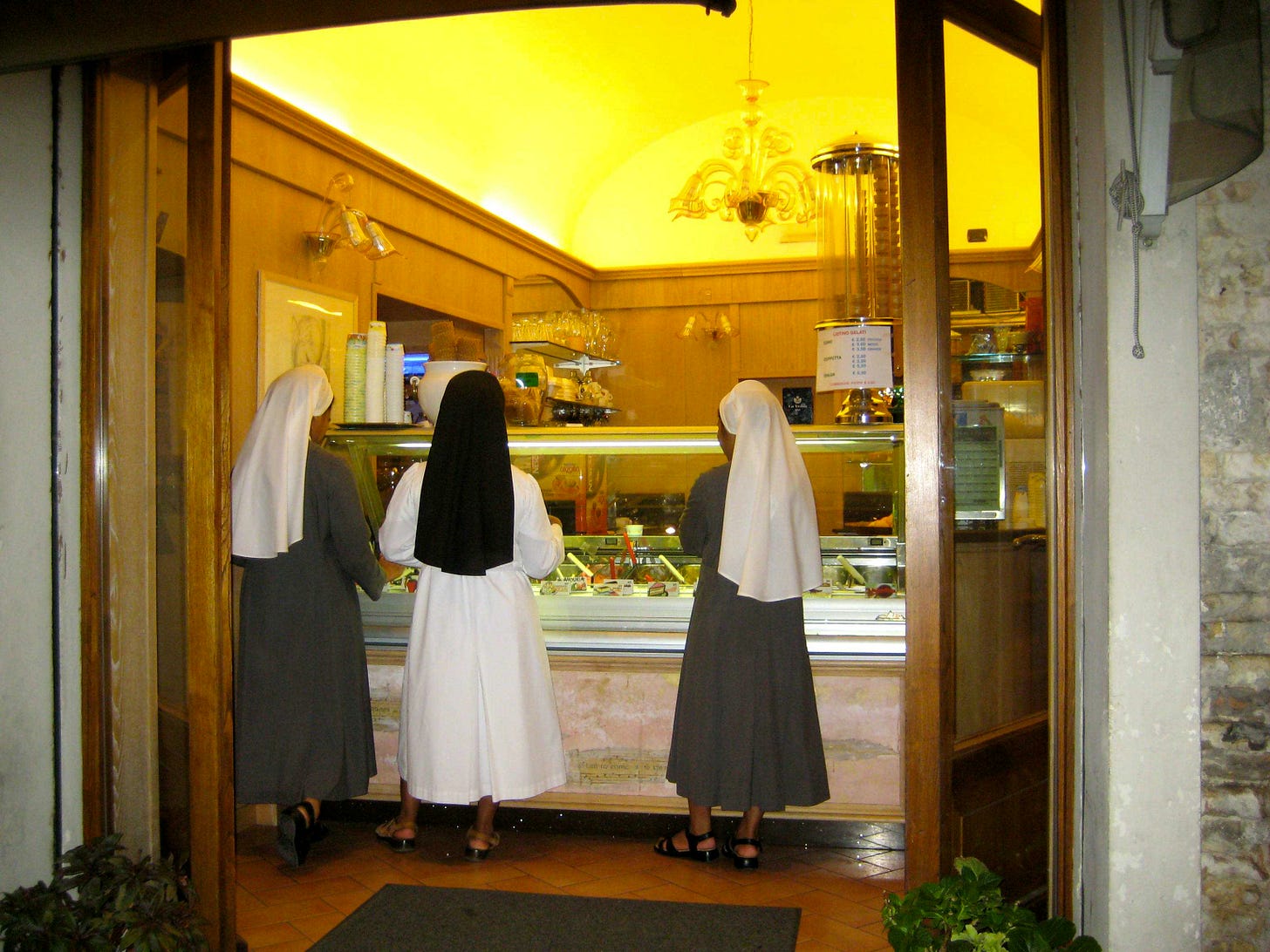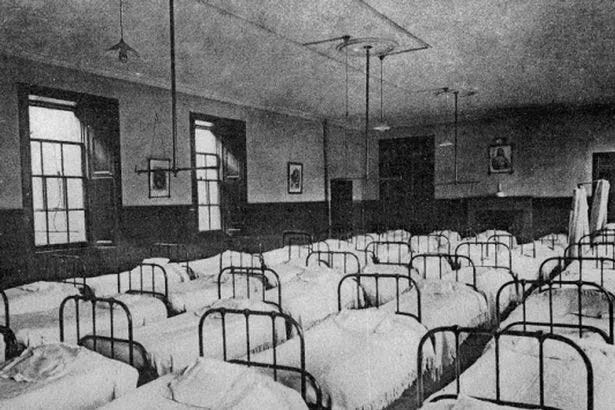I’ve long been fascinated by nuns. As a kid, I walked past Our Lady of Perpetual Help every day on my way to school and often saw the nuns who lived in the convent next door gliding toward the church, their arms bent, folded into the sleeves of their black habits, rosaries dangling.
I loved those habits! Once, a dress shop owner confided that she’d once been a nun but in time realized her real calling was the habit, especially the gorgeous black serge of her Sunday habit. It made perfect sense to me.
A nun I came to know in the 1970s had left her habit behind and when we were on a shopping expedition together bought a Halston jacket at a cut-rate shop that dealt in high-end goods—and seemed no less holy for it.
Now I observe nuns in Assisi every summer when I’m there as part of Art Workshop International, where I teach fiction. Gaggles of them strolling through town, waiting at the train station, driving the narrow, twisty streets (often like maniacs), eating gelato.
Once a friend and I mistakenly ended up in the nuns’ private garden when attempting to escape mass early and had to be led out by the extremely irate gardener. Another time we caught a glimpse of nuns and priests doing the bunny hop, a “civilian” between each one to avoid touching.
On a more serious note, part of me is drawn to the idea of life with a single purpose, pure and unquestionable. The peace and comfort of prayer.
In any case, I find novels that involve nuns irresistible. Sisters of Belfast by Melanie Maure is my most recent discovery.
“Aelish McGuire’s ten-year-old world lies broken All around her, confusing mounds of debris. She coughs, choking, scarcely able to breathe through brick dust soot, shock…How did she get from the bedroom she and Izzy share to the living room plunged in darkness?”
It’s 1941, her Belfast home destroyed by Hitler’s bombs, her parents dead, her twin sister trapped beneath the rubble.
We meet her next in 1955, now Sister Clare, onboard a ship carrying her to Newfoundland, where her estranged sister Izzy lives with her husband Declan and their twins Paddy and Sarah. Declan sent a letter to tell her Izzy was gravely ill, hospitalized with tuberculosis, begging her to come. But overwhelmed with memories, she’s terrified to let go of her hurt and resentment. Worse, what if she can’t keep the secret that would destroy everything buried?
She prays, which makes her remember praying in the Sisters of Bethlehem Orphanage when she was a child. How she imagined her prayers “drifting up and getting trapped in the rafters of the stark white dormitory ceiling, the words banging and frantic until, exhausted, they fell to the floor, lifeless, never reaching their destination. She could almost feel them under her feet sometimes, small prayer skeletons crunching underfoot.”
Aelish and Izzy’s memories of the orphanage bring to life the hellish conditions of Irish children in care of the Catholic Church during the mid-twentieth century. Sister Edel is as brutal a nun as you can imagine, wielding her power as Mother Superior through verbal and physical abuse; Sister Mary Michael, known as Sister Mike, is kind and loving, with a special place in her heart for Aelish and Izzy. Sister Lena, who watches over “the angels” at the nearby Home for Mothers and Babies, has been rendered childlike herself by the brutal conditions there.
Sisters of Belfast is a book of secrets and memories, told in the revolving points of view of Aelish, Izzy, and the three nuns. The novel takes us from the 1941 bombing through the early 1960s, with a prologue and epilogue in 2016.
It’s not a “fun” book to read but it is so rich in its complexity of character and its insight into time and place that its satisfactions far outweigh the pain of its revelations. For me, novels can be a form of witness in the way they make me see the most terrible things happening now or in the past, bringing insight and compassion that transfers to the real world.
So, yeah, Sisters of Belfast is a hard book to read. But it’s a compelling, beautifully told story.







Glad you liked the post. Bravo to your dad!
Thanks so much for these memories, Beth. It's so interesting how our ideas about big things (nuns, what it means to be a nun) are shaped by small things. I LOVE the image of the nuns hopping over the fence.